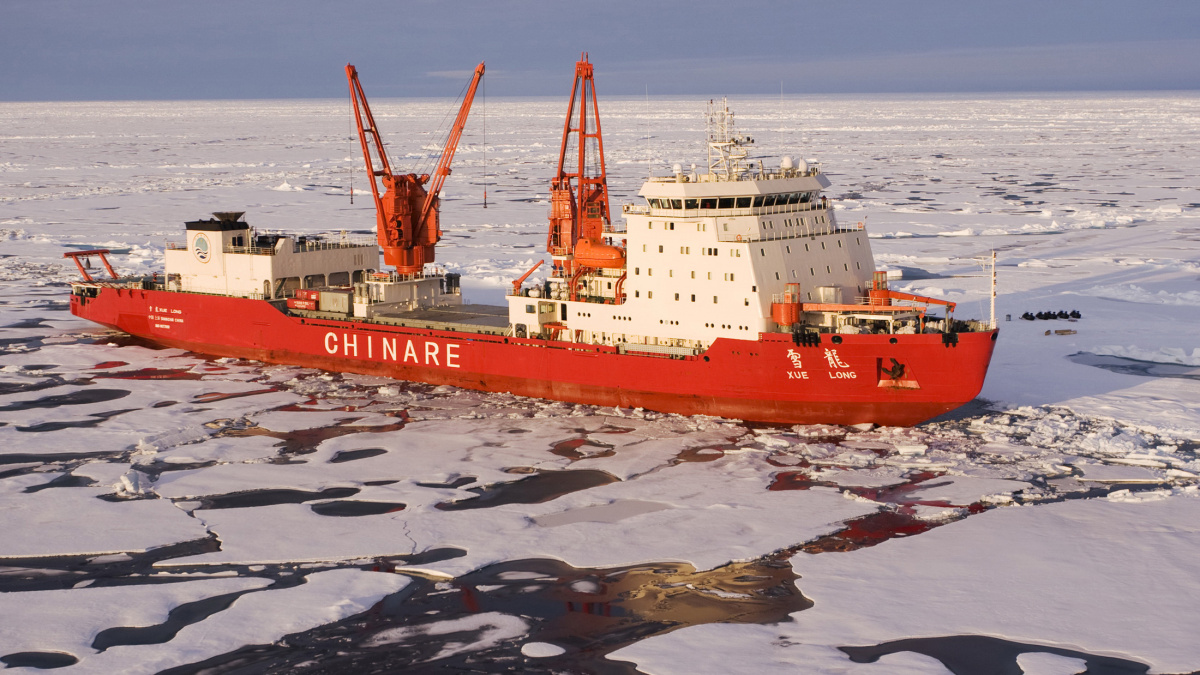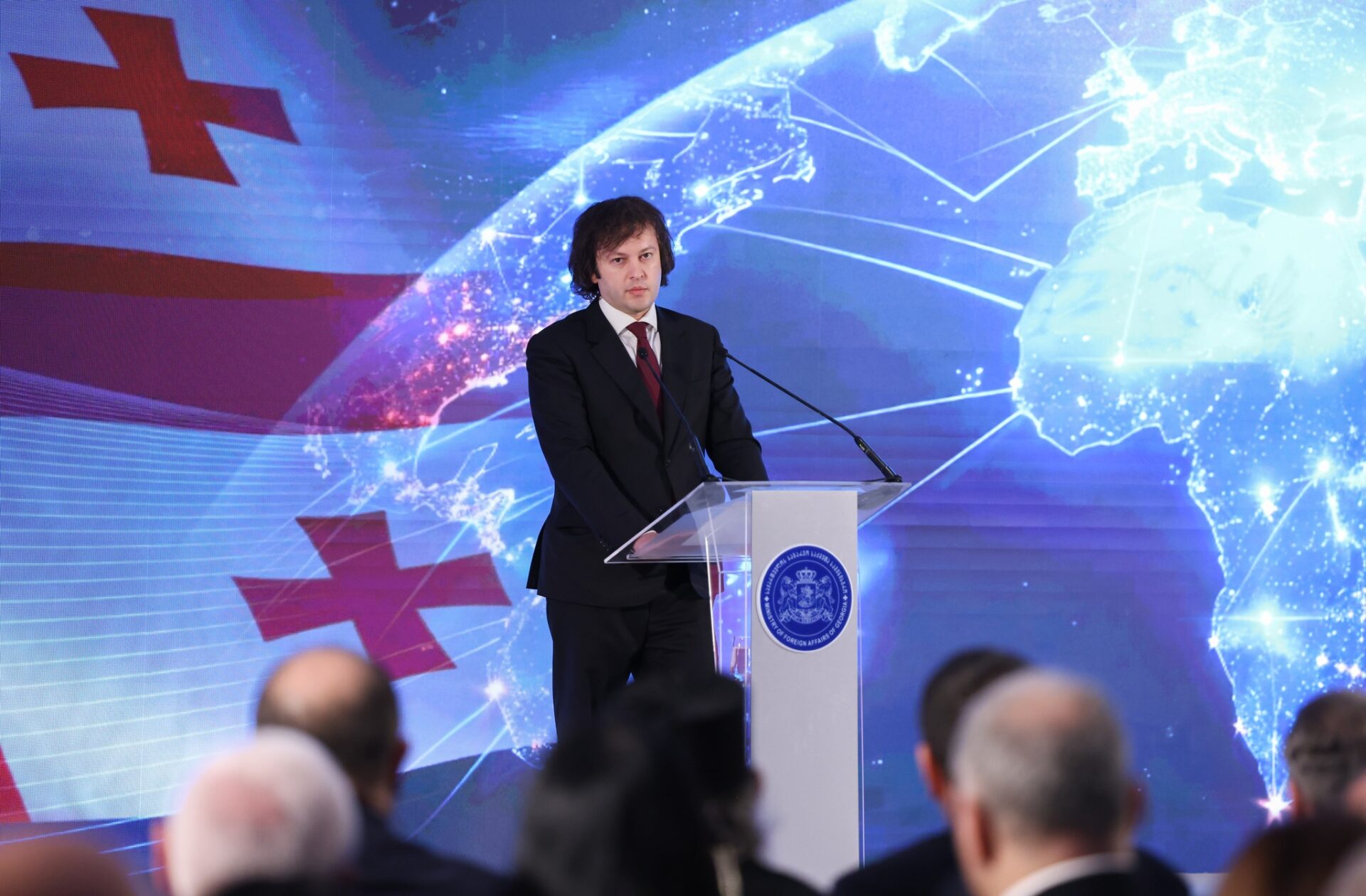
Moscow’s Cutback on Icebreaker Construction Opens Door for China in the North
Moscow’s Cutback on Icebreaker Construction Opens Door for China in the North
The growing costs of Russia’s war against Ukraine and the Western sanctions imposed at the end of February 2023 on Atomflot, the Russian company that builds icebreakers for Moscow, have forced the Kremlin to cancel plans to build two of three massive nuclear-powered icebreakers capable of breaking through thick ice. The Kremlin had announced that construction of these three vessels would be completed in the next few years. Instead, Moscow now says it will build seven smaller icebreakers that can only be used in those northern ports closer to the Russian coastline, where the ice is thinner, but not further north (The Barents Observer, March 1). This decision not only represents a serious retreat from Putin’s expansive plans in the Arctic, but it also opens the way for China to become the dominant player in the region far sooner. Beijing is continuing to build similar massive nuclear-powered icebreakers and has made it clear that it wants to operate what some have called the “Polar Silk Road” much further north than the current path of Russia’s Northern Sea Route—a strategy it has pursued for the past five years (see EDM, October 3, 2017).
In recent months, most commentaries regarding the Arctic in Moscow and the West have focused on competition between Russia and the United States, giving only minimum attention to China’s role and ignoring the possibility that what the West and Moscow are doing may give Beijing an opening far sooner to push the two parties aside in the region. Russian outlets continue to argue that China will cooperate with Russia in the long term both because it needs Russian nuclear fuel for such ships as well as access to natural resources along Russia’s Arctic coast (RIA Novosti, September 21, 2022; Lenta.ru, January 10; Vvesti.com, February 27). Western analysis both repeats those arguments and discounts Beijing’s interest or ability to challenge Moscow in the Arctic in the immediate future (see EDM, May 6, 2021; The Diplomat, February 13). But Moscow’s latest cutback in the face of Western sanctions and mounting war costs, coupled with China’s continuing work on icebreakers, are changing these self-serving conclusions.
Alarm bells are already sounding in Moscow and may soon sound in Western capitals as well. On February 26, Yuri Golub, a commentator for the Regnum news agency, titled his discussion on Arctic developments, “‘The Polar Silk Road’: China Has Occupied the Arctic.” That title, which suggests China has already achieved its goals, only slightly exaggerates the fears expressed in the article (Regnum, February 26). Golub postulates that Moscow, in focusing on challenges from the United States and the West in the Arctic, has neglected to pay attention to the rise of China and the way in which Beijing may now exploit Russian cutbacks to transform the geopolitical situation in the Arctic. And some of these measures may represent a direct threat to Russian national interests. Some in Russia have sought to limit China’s rise in this sector by restricting technology transfers in the case of non-nuclear icebreakers, but the government has not followed this up with restrictions on transfers involving nuclear-powered icebreakers (Kommersant, August 30, 2021). This likely reflects Moscow’s desire not to irritate its partner Beijing, especially while the war in Ukraine drags on. But if such an approach continues, Golub suggests, there is a real danger that China will be able to steal a march on Russia, ironically with Moscow’s assistance.
What is especially worrisome, the Regnum commentator continues, is that China has enormous shipbuilding capacities, with numerous yards. At present, Russia has only one that is capable of building large icebreakers. Furthermore, China is committed to building ever-larger icebreakers, including one that will weigh 38,000 tons, 5,000 tons more than Russia’s largest. If Moscow were seeking to correct this situation, that would be one thing; but it is not, Russian experts say, and as a result, China is set to spring ahead while Russia cuts back.
Golub cites the words of Boris Martsinkevich, editor of the Russian online journal Geo-Energy, which tracks Northern Sea Route issues, who says that, if Moscow and Beijing can reach an agreement on how to divvy up the north, China will be a useful ally; but if they cannot or will not, China will become an ever-more serious competitor (Regnum, February 26). He suggests the latter is the more likely outcome: Russia is not developing its shipbuilding capacity—in fact it is cutting back—while China is building its capacity at a rapid pace; as a result, in this sector, as in others, Russia may find itself dependent on China rather than the other way around. At present, Martsinkevich continues, Russia has only one wharf where super-sized nuclear-powered icebreakers can be built—in the Far East. And while Putin has promised to open a new one in St. Petersburg, no progress has been made in that direction nor has a timetable been set for its development.
The transportation expert says that Moscow still hopes it has the whip hand and can rein in China by controlling how much highly enriched uranium it will sell to Beijing. (As he notes, icebreakers need more highly enriched uranium than do other nuclear projects because the ships must stop and start continuously, a pattern that puts particular strain on their power plants.) But this Russian assumption is ever-less justified, Martsinkevich adds, because the Chinese have repeatedly shown that they can make more progress technologically than the officials in Moscow are inclined to believe (Regnum, February 26). If Russia loses this lever, and if Western sanctions force the Kremlin to delay or cancel the planned construction of even the one remaining super-sized nuclear icebreaker, China could quickly become the dominant power in the Arctic. In this, Beijing would be taking advantage of a combination of three factors: Western sanctions, which are limiting Russian construction; the continuing expansion of Chinese shipbuilding; and environmental changes, which are pushing the icepack further north.
In that event, Moscow’s decision to cancel plans for two more super-sized nuclear-powered icebreakers may become a major turning point in Arctic geopolitics, one that both Moscow and the West will be forced to respond to far sooner than most had thought possible.


